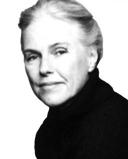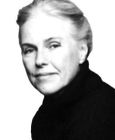Relationships
Should We Choose Someone Similar or Different as a Mate?
Who makes the ideal partner in love and marriage?
Posted June 27, 2015
I was recently rereading the wonderful "Blue Flower" by Penelope Fitzgerald. The book is filled with incongruities, juxtaposition of opposites, and unlikely pairs. Perhaps its authenticity lies in its unlikely and unexpected contiguities: aristocrats who live in huge manors but have no money, a doctor who is against blood-letting but lectures with a glass of whiskey and laudanum in both hands sipping from each in turn to demonstrate the perfect balance, and the most unlikely love affair imagineable.
In fact, one can hardly think of anything more unlikely and therefore perhaps entirely believable, for who, one wonders, would have dared to make it up? The lover is Felix von Hardenburg, a member of the minor aristocracy and a brilliant poet and thinker who, at twenty two, falls in love with twelve-year old Sophie von Kuhn in fifteen minutes. She is standing at the window in the saal—a long room. This is eighteenth century Germany, and Sophie is tapping at the glass, trying to attract the attention of someone outside.
"Let time stand still until she turns around," Fritz thinks. He seems already to be in love without even seeing her face, and by the time she has turned around "as though caught by a gust, as children do in the wind" he has fallen completely and irrevocably in love with her. "Something has happened to me," he says, bewildered. He promptly proposes to the little girl.
Sophie, it turns out is not only just twelve years old but neither particularly pretty—or so she is judged by Fritz's brother, nor particularly bright. Fritz, however, thinks she looks like the portrait of the young Raphael with her beautiful brown hair and her pretty long nose. He is aware that she would probably prefer to play with her little brother, and she tells him that she never thinks of poetry and she does not believe in the after life which shocks Fritz whose family is religious, but nothing changes his feelings for her.
Yet we believe this unlikely story and not only because we know it is based on real people and a real situation. Is this because we, too, are often irrevocably attracted to the strange, the different, the exotic? And how then does this work out in practical terms, once this coup de foudre has passed?
In the case of young Fritz with his beloved, tragically she does not live long enough for him to find out. In my own case, I married a man who seemed exotic to me: from a different country (he is from the Middle West and I am from South Africa), from a different religion (I am an Anglican and he is Jewish), and with a very different temperament (he is a most methodical medical man). If you compared his desk to mine you would immediately see the great difference between us: order reigns amongst his papers, whereas my own desk is a complete mess with papers scattered all over.
Yet we have been married now for almost thirty years in relative harmony. Is this because under these differences hide certain similarities? It is true, we are both earnest, hard-working, active people who believe we are here to contribute in some way to society. We are both intellectually curious, have a love of learning; we are both readers, though often of different books.
Perhaps the truth is that we do not choose our partners, but that chance, luck, destiny, God's will, or whatever you wish to call it, chooses us.
Sheila Kohler is the author of " Cracks" "Becoming Jane Eyre" and most recently "Dreaming for Freud." http://Amazon.com


